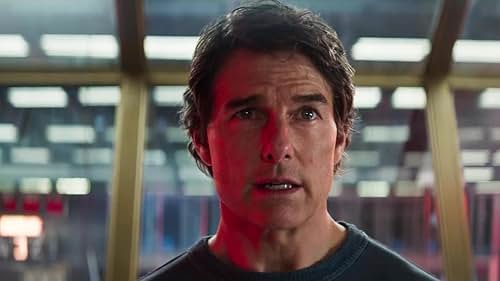By Dustin Rowles | News | May 5, 2025

The President threatened 100 percent tariffs on movies made outside the United States in a post on Truth Social last night, leaving the entire industry scrambling and confused about what this means and how it might affect them. There’s real concern it could batter an industry still reeling from the pandemic and the writers’ strike. It would almost certainly devastate the independent film sector.
It’s unclear whether the tariffs will actually be implemented, how they’d be enforced, or even if it’s legal to impose them. California Governor Gavin Newsom is already threatening a lawsuit.
The big hope is that this will blow over, that Trump will quickly move on to something else. In his post, he simply said he would authorize the U.S. Trade Representative to tax “any and all Movies coming into our Country that are produced in Foreign Lands.” But what does that even mean? Will he target films produced by foreign companies? Or movies made by American studios that are shot overseas? Or both? What about films shot partly at home and partly abroad? When would the tax go into effect? Would it apply to soon-to-be-released films like the final Mission: Impossible movie? How would it even be levied? On ticket sales? Subscription fees? And if a film is made both domestically and internationally, would the tariff only partially apply? Would it include television productions, too?
It all seems not just damaging, but logistically unworkable. The President also suggested these tariffs would be authorized under a 1977 law that permits trade penalties in the event of a national security threat. But the only national security threat to the movie industry here is the President himself. Can we tariff him? Film production is a creative service, and so far, the President has avoided imposing tariffs on the service sector.
This would be unwieldy as hell and the uncertainty alone could cause serious harm if this doesn’t blow over quickly. Yes, more productions have moved overseas to capitalize on foreign tax incentives, but the solution isn’t to double the cost of making films abroad. It’s to offer better incentives at home, like those provided by Georgia and Louisiana. (There’s a reason Marvel movies are often shot in Atlanta, and why Sinners was filmed in Louisiana.) There’s also a reason A Minecraft Movie and the Avatar films are made in New Zealand: tax breaks and settings that serve creative vision. And creative decisions shouldn’t be subject to tariffs. That feels like a First Amendment issue.
It’s also unclear whether these tariffs would apply to films produced in America — written, financed, and edited here — but shot elsewhere. None of it makes a damn lick of sense.
In short, these proposed tariffs would be difficult to enforce, likely illegal, and deeply harmful. There will be lawsuits. There will be outrage. And it’s all incredibly stupid, because the American film industry actually generates a massive trade surplus: we bring in 3.1 times more money than we send out. If Trump truly wanted to strengthen the industry, he’d make it cheaper to film in the U.S., not more expensive to film anywhere else.
Feels like Tom Cruise may need to finish one final mission: Use that star power to talk some sense into the President of the United States.